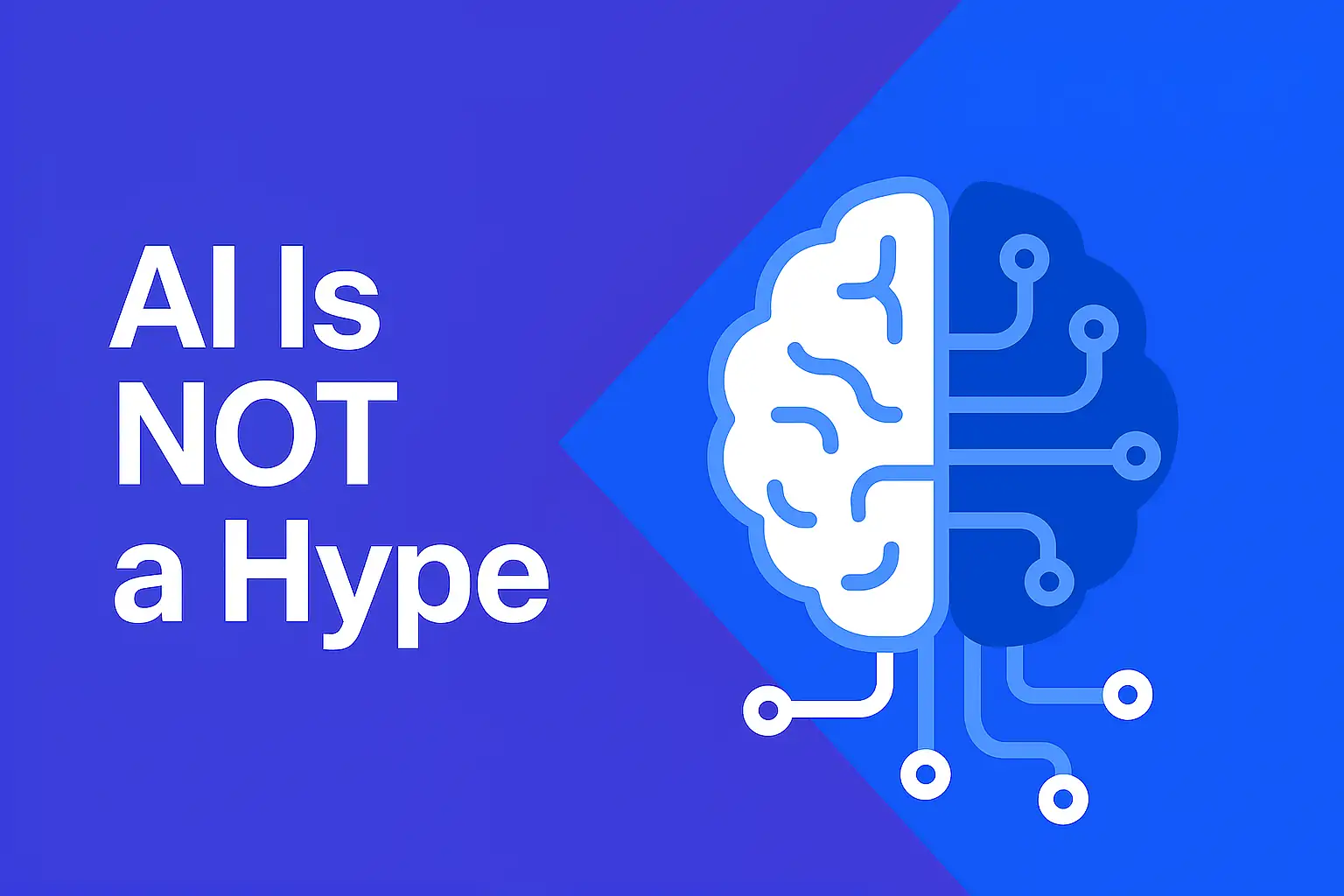
AI Is the New Standard: Why Ignoring It Will Leave You Behind
AI Is the New Standard: Why ignoring it means falling behind!
The debate around AI is everywhere. Scroll through LinkedIn and you’ll still see the same objections repeated:
AI can never replace creativity.
Our clients want human contact, not a robot.
AI is just a hype, it will blow over.
Listen up: If you're not obsessing over AI right now, you're already falling behind. We're so early that starting today could put you 20 YEARS ahead of your competition in just 2-3 years.
AI is not hype. It is the new standard. And those who see it clearly today will own the opportunities of tomorrow.
Listen up: If you're not obsessing over AI right now, you're already falling behind. We're so early that starting today could put you 20 YEARS ahead of your competition in just 2-3 years.
- Lessons from past innovations
- Why ignoring AI is the new generational gap
- How the next generation sees AI
- Why people resist change
- AI across every workplace sector
- The myth of AI replacing authenticity
- The path forward: adapt or be left behind
Lessons from past innovations
We’ve seen this story before. The computer replaced the typewriter. Email replaced handwritten letters. Online banking replaced visits to the branch office. Each of these shifts brought skepticism, fear, and resistance. Yet those who clung to the past soon found themselves struggling with everyday tasks. Today, some people can no longer withdraw money or make a transfer without help because physical offices are disappearing. The same fate awaits those who dismiss AI.Why ignoring AI is the new generational gap
Ignoring AI doesn’t mean protecting yourself. It means voluntarily joining the “left behind” generation. Those who refuse to adapt will soon find themselves unable to perform simple professional tasks in a world where AI is woven into every process. Think about what happens when industries digitize: paperwork disappears, workflows change, and entire roles are reshaped. AI isn’t just another tool—it’s the infrastructure of tomorrow’s work.How the next generation sees AI
Look at today’s 18-year-olds. Do you really think they will fill out endless spreadsheets or draft long reports manually once they enter the workforce? Of course not. They are growing up with AI at their fingertips, and they will embrace it without hesitation. What feels intimidating to older professionals is second nature to them. For this generation, AI is not a threat but a shortcut to focus on creativity, strategy, and decision-making. They won’t see AI as “cheating”—they’ll see it as obvious.Why people resist change
Resistance to AI often comes from fear. The pace of development feels overwhelming, and many people panic when they realize they cannot keep up. Instead of learning, they dismiss it. But history is unkind to those who deny progress. Every generation has examples of people who avoided new tools until it was too late. The refusal to adapt isn’t a sign of principle—it’s a refusal to learn. And in the modern workplace, that refusal quickly turns into irrelevance.AI across every workplace sector
AI is not just for coders or marketers. It benefits every layer of the workforce:- In production halls, AI optimizes logistics, predicts maintenance, and improves safety.
- In offices, AI automates repetitive tasks like scheduling, reporting, and data entry.
- In healthcare, AI assists with diagnostics, patient monitoring, and administrative efficiency.
- In retail, AI analyzes customer behavior and personalizes recommendations.
- In education, AI creates tailored learning experiences and automates grading.
The myth of AI replacing authenticity
Critics often say: “AI replaces authenticity.” But that misunderstands its role. AI is not here to take away originality—it’s here to free us from drudgery. AI drafts, edits, summarizes, and analyzes. But vision, empathy, and leadership remain human strengths. A marketer still decides on brand voice. A teacher still inspires students. A doctor still delivers care. AI simply removes the repetitive steps between idea and execution. When used well, AI enhances authenticity by giving professionals more time to focus on what truly matters.The path forward: adapt or be left behind
The future is not uncertain. AI will be embedded into everything we do. The question is not whether you will use it, but when. Resisting AI is not a badge of honor—it’s a choice to limit your own opportunities. Those who embrace it today set the tone for tomorrow’s standards. They will be the ones leading organizations, innovating new solutions, and shaping industries. So, ask yourself: Are you still riding the horse, or are you learning to drive the car? The choice defines whether you become a leader in the age of AI or part of the generation left behind.AI is not hype. It is the new standard. And those who see it clearly today will own the opportunities of tomorrow.